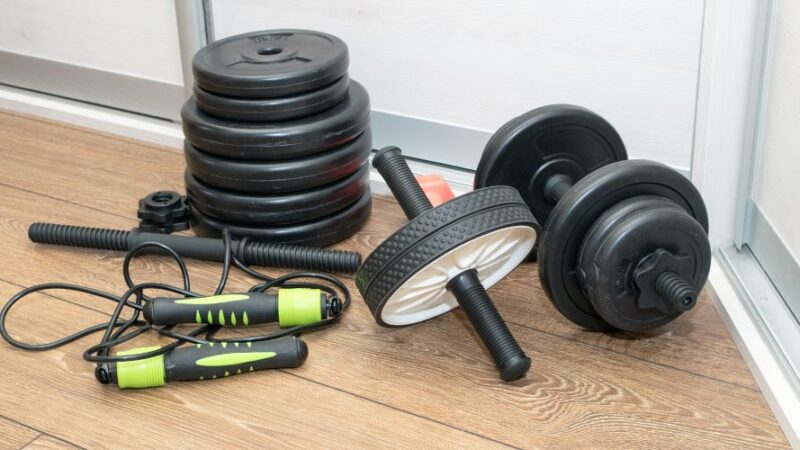Importance of Regular Physical Activity for Overall Health

In our fast-paced world, where time seems to slip through our fingers like sand, it’s easy to neglect our physical health. We often find ourselves immersed in our daily routines, swamped with work commitments, and engrossed in digital screens. In the hustle and bustle of modern life, the significance of regular physical activity for overall health can sometimes be overshadowed. However, the benefits of prioritizing physical well-being cannot be overstated.
In this comprehensive blog, we will explore the importance of regular physical activity and delve into the myriad ways it contributes to our overall health. From cardiovascular improvements to mental health benefits, we’ll uncover the science behind why physical activity should be an integral part of our daily lives. So, let’s embark on this journey to better understand why regular exercise is not merely a choice but a necessity for our well-being.
Benefits of Regular Physical Activity
- Cardiovascular Health Improvement
One of the most significant advantages of regular physical activity is the enhancement of cardiovascular health. Engaging in activities such as brisk walking, jogging, or cycling helps strengthen the heart, making it more efficient at pumping blood. This, in turn, reduces the risk of heart diseases, including heart attacks and strokes.
The American Heart Association recommends at least 150 minutes of moderate-intensity aerobic activity or 75 minutes of vigorous-intensity aerobic activity per week, spread throughout the week for optimal cardiovascular health.
- Weight Management and Obesity Prevention
In an era where obesity rates are soaring, regular exercise plays a pivotal role in weight management and obesity prevention. Physical activity helps burn calories, aiding in weight loss or maintenance. Moreover, it boosts metabolism, making it easier to control body weight.
When combined with a balanced diet, regular physical activity can be a powerful tool for those striving to shed excess pounds. It’s a sustainable approach to maintaining a healthy weight.

- Muscular Strength and Endurance Enhancement
Regularly engaging in resistance training, such as lifting weights or bodyweight exercises, helps build muscular strength and endurance. Strong muscles are not only aesthetically pleasing but also crucial for performing daily tasks with ease and preventing injuries.
Strength training also contributes to improved posture and balance, which can reduce the risk of falls, especially in older adults.
- Bone Health Promotion
As we age, our bones tend to weaken, increasing the risk of fractures and conditions like osteoporosis. Weight-bearing exercises, such as walking, running, and weightlifting, stimulate bone growth and density, preserving bone health.
It’s not just about muscles; your bones also benefit from regular physical activity.
- Enhanced Flexibility and Mobility
Stretching exercises, like yoga or Pilates, enhance flexibility and mobility. These activities help maintain a wide range of motion in your joints and muscles, reducing the risk of injury and improving overall physical comfort.
- Pain Management and Joint Health
Contrary to common misconceptions, regular physical activity can alleviate certain types of chronic pain. For instance, low-impact exercises like swimming and cycling can be gentle on the joints while providing pain relief for conditions like osteoarthritis.
Additionally, exercise triggers the release of endorphins, natural painkillers that can alleviate discomfort.
- Stress Reduction and Mood Enhancement
Exercise isn’t just about physical health; it profoundly impacts mental well-being. Regular physical activity triggers the release of neurotransmitters like endorphins and serotonin, which are known to improve mood and reduce stress.
Whether it’s a brisk walk in the park or a high-intensity workout at the gym, exercise can be a natural remedy for the pressures of modern life.
- Cognitive Function Improvement
The benefits of exercise extend to the brain as well. Regular physical activity has been linked to improved cognitive function, including enhanced memory, attention, and problem-solving skills. It can also lower the risk of cognitive decline and neurodegenerative diseases, such as Alzheimer’s.
- Better Sleep Quality
If you struggle with sleepless nights, introducing regular physical activity into your routine might be the solution. Exercise promotes better sleep by regulating sleep patterns and reducing insomnia symptoms.
However, it’s essential to time your workouts wisely, as vigorous exercise close to bedtime can have the opposite effect.
- Anxiety and Depression Mitigation
Mental health conditions like anxiety and depression affect millions worldwide. While exercise isn’t a cure-all, it can significantly alleviate symptoms and improve overall mental well-being. Regular physical activity releases chemicals like norepinephrine, which can help moderate mood disorders.
- Reduced Risk of Chronic Diseases
The prevention of chronic diseases is another compelling reason to prioritize regular exercise. Engaging in physical activity can reduce the risk of various conditions, including type 2 diabetes, certain cancers, and hypertension. It also helps manage existing conditions more effectively.
- Enhanced Immune System Function
A robust immune system is essential for warding off infections and illnesses. Regular physical activity can boost your immune system by promoting good circulation and reducing inflammation. This means fewer sick days and a generally healthier life.
- Increased Life Expectancy
Finally, the cumulative effect of all these benefits contributes to increased life expectancy. Those who lead active lives tend to live longer, healthier lives. Regular physical activity is not just about adding years to your life but adding life to your years.
Importance of Physical Health in Our Lives

Now that we’ve explored the numerous benefits of regular physical activity, let’s underscore the importance of physical health in our lives.
Physical health is the foundation upon which our overall well-being is built. It affects every facet of our existence, from our ability to work and enjoy leisure activities to our emotional and mental stability. When we prioritize physical health, we’re not just investing in a longer life; we’re ensuring a higher quality of life.
Imagine trying to achieve your goals, pursue your passions, or simply savor life’s pleasures when you’re constantly battling illness or discomfort. Physical health provides us with the vitality and resilience necessary to face life’s challenges head-on.
Additionally, physical health is closely intertwined with our social and economic well-being. Healthy individuals are more productive at work, which can lead to better career opportunities and financial stability. They also tend to have more fulfilling social lives, as they have the energy and stamina to engage in social activities and maintain relationships.
In essence, physical health is the cornerstone of a fulfilling, prosperous life. It’s not something we can afford to neglect or take for granted.
Incorporating Physical Activity into Daily Life

Understanding the importance of regular physical activity is only the first step. To truly reap the benefits, we must integrate exercise into our daily routines. Here are some strategies to help you make physical activity a non-negotiable part of your life:
- Set Realistic Goals: Start with achievable fitness goals that align with your current fitness level. Whether it’s walking for 30 minutes a day or doing three days of strength training per week, setting specific, attainable targets will keep you motivated.
- Create a Routine: Consistency is key. Establish a workout schedule that fits your daily life. Treat your exercise time as you would any other important appointment.
- Find Activities You Enjoy: Physical activity shouldn’t be a chore. Discover activities you genuinely enjoy, whether it’s dancing, hiking, swimming, or playing a sport. When you have fun while being active, it becomes a lifelong habit.
- Incorporate Activity into Your Day: Look for opportunities to move throughout the day. Take the stairs instead of the elevator, walk or bike to nearby destinations, and consider a standing desk at work.
- Get Social: Engage in physical activities with friends or family. Group workouts can be motivating and enjoyable, fostering a sense of community.
- Track Your Progress: Use fitness apps or journals to monitor your progress. Seeing improvements in your strength, endurance, or overall health can be highly motivating.
- Prioritize Recovery: Don’t forget to allow your body to rest and recover. Adequate sleep and rest days are essential to prevent burnout and injuries.
- Combine Exercise with Healthy Eating: Regular physical activity complements a balanced diet. Fuel your body with nutritious foods to maximize the benefits of exercise.
Conclusion
In a world filled with distractions and demands, it’s easy to neglect our physical health. However, the importance of regular physical activity for overall health cannot be overstated. From cardiovascular improvements to mental well-being, the benefits are far-reaching and transformative.
Physical health isn’t a luxury; it’s a fundamental pillar of our existence. It impacts our personal and professional lives, our happiness, and our longevity. It’s a lifelong investment that pays off in the form of vitality, resilience, and a better quality of life.
So, let’s make a commitment to prioritize regular physical activity. Let’s embrace the joy of movement and savor the profound benefits it brings. As we do, we’ll not only add years to our lives but also ensure that those years are filled with health, happiness, and fulfillment.





